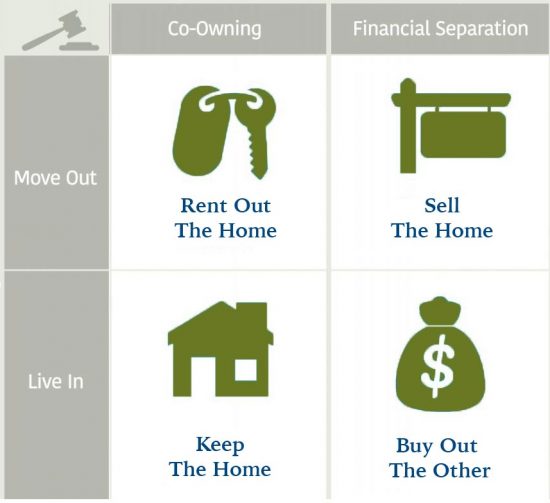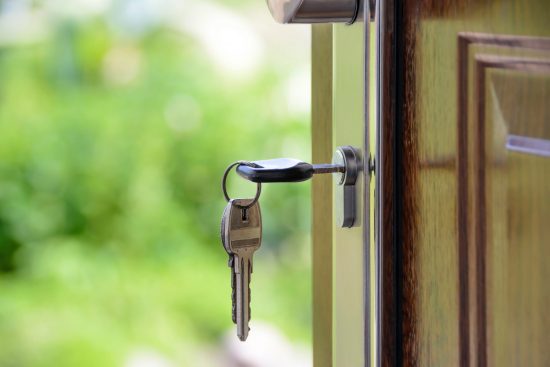Buying a House After a Divorce
Blog
How to Find the Right Living Situation After a Divorce
Divorce can be a difficult process to navigate. There are many changes that result from a divorce that affects your life in moving forward in so many different ways, which can include buying a house after a divorce.
Whether you’re already divorced or you have separated and are intending the get a divorce, the question of future living situation looms. This is uncharted territory for most, and the situation should be handled delicately.
What Are My Options After a Divorce?
Buying a house after a divorce can depend on the plan on what to do with your marital home. This decision can often be a subject of conflict between divorcing spouses. What you ultimately decide to do will depend on whether it makes sense for either of you to retain ownership of the property.
Factors:
You’ll need to consider whether it suits you better to find a new home, depending on:
- Your Income & Financial Situation
- Your Family & Child Custody Issues (schools, friends, etc)
- Proximity to Your Employment
- Proximity to Your Ex-Spouse
Your Options:
In divorce litigation, a judge can award the marital home to a spouse as part of the property distribution. The court will often look at several factors to determine who gets the home.

Option 1: Sell The Home
One option is to move out and equitably split the profits from the sale. Putting the home on the market can be a way to obtain cash for your financial plans moving forward. There are a few reasons why this option might work:
- Neither Spouse Wants to Stay in the Marital Home
- Neither Spouse Can Afford to Purchase and Keep the Property
- You Don’t Have School-Aged Children
Option 2: One Spouse Buys The Home
When it comes to keeping your home, a buy-out by one of you is an option. It’s important to note that a buyout can occur immediately by refinance, or over time, with periodic payments or a lump sum payment, secured by a note and a mortgage.
- Spouses have differences in financial situations
- Spouses want to keep the children in the same home
Option 3: Co-Owning
Co-owning the home is an ideal option for families that want to keep their kids in the house until they finish school. As home co-owners, the couple become “tenants in common,” meaning they each own half the house as opposed to “tenants by the entirety” as a married couple. Once the children finish school, the parties typically sell the home and divide the proceeds in accordance with a scheme settled on at the time of the divorce.
- If you trust each other to make payments on the home
- Spouses want to keep children in the same home
Option 4: Rent Out the Home
An alternative option that many divorcing spouses may want to consider is renting the home out to tenants, either to preserve the growing asset or to wait for value to increase beyond the mortgage balance.

How to Find a New Home After a Divorce:
With the help of local real estate professionals Rich Rosa (Buyers Brokers Only LLC) and Bill Gassett (Maximum Real Estate Exposure) here in greater Worcester, here are a few tips on buying a house after a divorce.
Should I Downsize My Home After Divorce? How much?
 Bill Gassett: “When getting a divorce one of the common things people will think about is what they should be buying. Quite often the home they are leaving will be larger than the one they will be purchasing. It makes sense given the fact the family will be split in two. An important consideration when there are children, however, is accommodating their needs. Both parents need to think about such things as the number of bedrooms and baths that will be cohesive in the new arrangement, especially when there is joint custody“.
Bill Gassett: “When getting a divorce one of the common things people will think about is what they should be buying. Quite often the home they are leaving will be larger than the one they will be purchasing. It makes sense given the fact the family will be split in two. An important consideration when there are children, however, is accommodating their needs. Both parents need to think about such things as the number of bedrooms and baths that will be cohesive in the new arrangement, especially when there is joint custody“.




Should I Relocate After a Divorce?








What About Children?








Divorce & Moving Homes Isn’t Easy
It’s important to remind yourself that it takes time to adjust to your home after a separation or a divorce, whether that home is the current home without your partner or a new home.
If you need help with a divorce in the greater Worcester and Central Massachusetts areas, we are experienced Worcester County divorce attorneys offering both divorce mediation and divorce litigation services.

